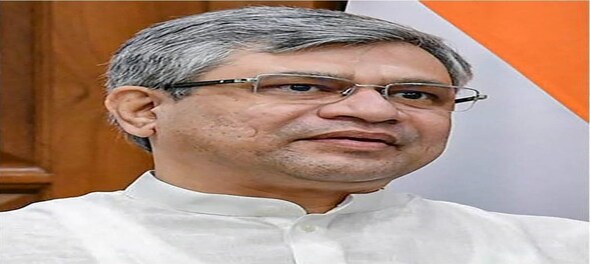
India can replicate the success achieved in mobile phone manufacturing into the domain of laptops and tablets, said Union IT and Telecom Minister Ashwini Vaishnaw on Thursday, while also highlighting the country's growing prominence as a significant manufacturer of laptops, tablets, and servers.
On August 3, India imposed import restrictions on a wide range of IT hardware products, including laptops, personal computers (including tablet computers), microcomputers, large or mainframe computers, and certain data processing machines. The primary objective of these measures is to boost domestic manufacturing and reduce reliance on imports from China. These regulations are set to come into effect on November 1 and will remain valid until September 30, 2024.
Under the revised system, importers will be required to obtain import authorisations, which can be acquired by furnishing comprehensive information about the value and quantity of their imports. To support these transformations, the DGFT has launched a comprehensive online platform, highlighting its commitment to a 'seamless' and 'hands-free' approach, thus enhancing the efficiency and accessibility of import management.
Arun Venkatraman, the US Additional Secretary for Commerce, emphasised the importance of meaningful consultation between governments and stakeholders before implementing changes to import policies. The United States is supportive of India's efforts to secure and enhance supply chain resilience but emphasises the necessity for India to clearly articulate its objectives in its import authorisation policy for Information and Communications Technology (ICT). Several American companies, such as Tesla, Micron, and First Solar, are actively collaborating with the Indian government to contribute to India's growth story. It is crucial to prudently manage tariffs on essential inputs to avoid discouraging manufacturing.
In the fiscal year 2022-23, India imported personal computers, including laptops, worth $5.33 billion, a decrease from the $7.37 billion imported in the previous fiscal year (2021-22).
The Director of the IMF acknowledged India's remarkable progress in various sectors and emphasised that restricting imports of laptops and IT equipment might not be the most effective strategy. To fully realise its potential, India should concentrate on trade liberalisation and eliminate unnecessary restrictions.
The Ministry of Electronics and IT (MeitY) is actively addressing industry concerns regarding import restrictions. MeitY has expressed its reluctance to impose unwarranted constraints that could lead to artificial scarcity. The Ministry is of the view that the current mechanisms adhere to WTO compliance standards, thereby reinforcing India's stance on the matter. They also stated that they will consider the possibility of imposing additional restrictions on laptops, tablets, and PCs after assessing import data up to September 30, 2024.
(Edited by : Ajay Vaishnav)
First Published: Oct 19, 2023 6:29 PM IST
Check out our in-depth Market Coverage, Business News & get real-time Stock Market Updates on CNBC-TV18. Also, Watch our channels CNBC-TV18, CNBC Awaaz and CNBC Bajar Live on-the-go!


Lok Sabha elections: 3rd phase sees over 65% voter participation, Assam leads with 81.71% turnout
May 8, 2024 1:00 AM
Telangana CM violated poll code, defer Rythu Bharosa payment, says Election Commission
May 7, 2024 9:01 PM
Lok Sabha Election 2024: How Indian political parties are leveraging AI
May 7, 2024 6:59 PM

